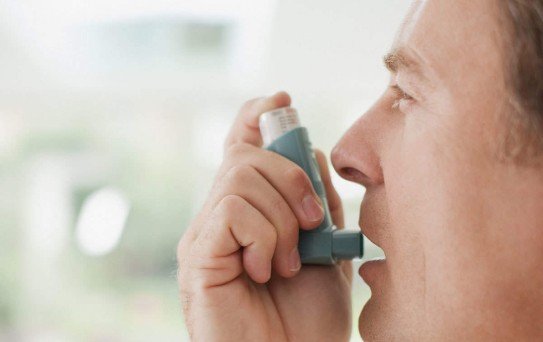
Asthma

The passageways in your lungs can narrow, puff up, and create additional mucus when you suffer from this condition. This can make breathing challenging and cause wheezing and coughing as you exhale, and also experience loss of breath. While this issue can be a mild annoyance for certain individuals, others may experience a serious issue that hinders everyday tasks and could result in a potentially fatal asthma attack.
While there is no fixed way to cure asthma, Sevyam offers a range of natural and ayurvedic treatment solutions to control the symptoms of this issue. We primarily use exercise and a DIP diet plan to provide relief to our patients.
Understanding an asthma attack
It is quite essential to get treatment for asthma as patients can get an asthma attack anytime. So what exactly do we mean by this term?
The muscles that surround your nostrils relax when you breathe daily, allowing air to pass through them silently and effortlessly. There are three possible outcomes during an asthma attack:
Bronchospasm: The muscles surrounding the airways get constricted. Since they get constricted, your airways tend to become more narrow. Constrictions in the airways prevent the free passage of air.
Inflammation: Your airways’ mucosal lining swells. Swollen airways restrict the amount of air that may enter or exit your lungs.
Production of mucus: The attack causes your body to produce extra mucus. Airways are blocked by this heavy mucus.
When your airways become more constrictive, you wheeze, which is a sound your airways make when you exhale. An asthma episode may also be referred to as an exacerbation or a flare-up. It is a term used to describe asthma that is not under control. Our treatment for asthma brings comfort for our patients and tends to give them relief from the symptoms. While it is generally seen that it is not completely possible to cure asthma, our expert healthcare professionals have managed to do miracles for our patients.
Are you prone to this disease?
Asthma can strike individuals at any stage of life. It is more prone to occur in those who have allergies or have been subjected to cigarette smoke. It involves being exposed to thirdhand smoke (exposure to garments or surfaces in locations where somebody has smoked) as well as secondhand smoke (being subjected to someone else who is smoking).
According to statistics, women have an increased risk of developing asthma. Black people get asthma more commonly than persons of other races.
What are the causes of this disease?
It is still a mystery why some individuals suffer from this disease while some do not. However, some of the common causes include:
Allergies: You run a higher chance of acquiring asthma if you suffer from allergies.
External factors: After being exposed to things that irritate the airways, people can suffer from this disease. Allergens, poisons, gasses, and second or third-hand smoke are some of the common reasons why some individuals suffer from this issue. These can be particularly dangerous for babies and young children that have immune systems that are still maturing.
Genetics: You run a higher chance of contracting the illness if asthma or other allergy illnesses run in your family.
Infections in the respiratory system: The growing lungs of young infants can be harmed by several respiratory diseases, like the respiratory syncytial virus (RSV).






